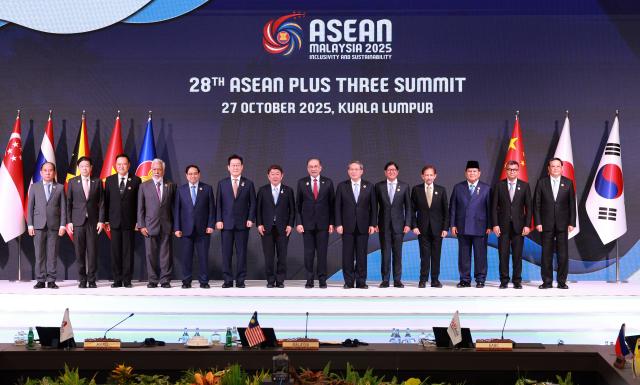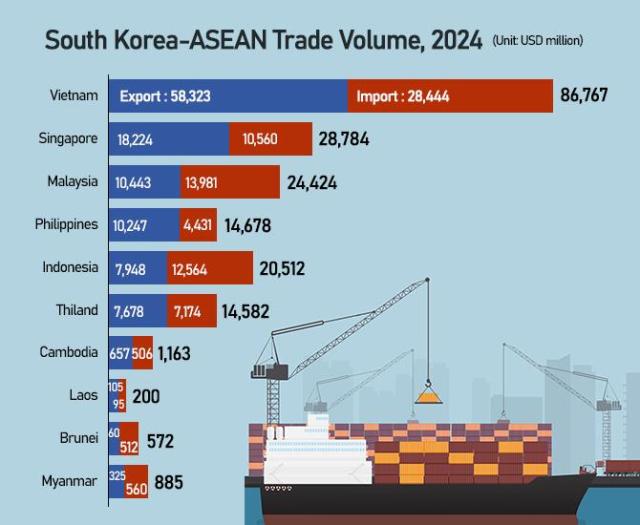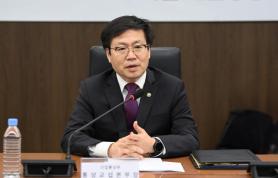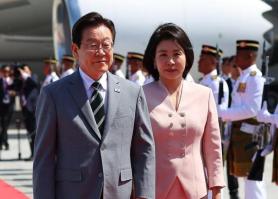
President Lee Jae Myung, in his address at the ASEAN summit in Kuala Lumpur on Monday, described ASEAN as "neighbors who have overcome hardships together," calling the bloc South Korea's closest partners in both geography and spirit.
Korea and ASEAN elevated their relations to a Comprehensive Strategic Partnership (CSP) last year — ASEAN's highest level of external cooperation — and Lee pledged to further advance the partnership under what he called a "CSP Vision" of contributor, springboard and partner.
"South Korea will serve as a contributor to ASEAN's aspirations, a springboard for innovation and a partner for peace and stability," Lee said, announcing plans to host a special Korea-ASEAN summit in 2029 to mark the 40th anniversary of relations.
The CSP Vision reflects a broader shift from earlier trade-centered engagement toward multidimensional partnership spanning political dialogue, economic integration and shared security goals.
Seoul's ASEAN outreach comes as the region is caught in the crossfire between Washington and Beijing amid their tit-for-tat tariffs and trade sanctions. The strategy has already paid off.
According to the Korea International Trade Association (KITA), Korea's total trade with the ten ASEAN member states reached $192.8 billion (about 270 trillion won) in 2024, accounting for about 16 percent of its total trade.
As of September 2025, Vietnam ($69.5 billion, 97 trillion won), Singapore ($22.8 billion, 32 trillion won) and Malaysia ($20.4 billion, 29 trillion won) remain Korea's top ASEAN trading partners.

"Amid the U.S.-China trade confrontation, ASEAN is leading efforts to sustain an open trading order," said Park Min Joung, research professor at the Institute of Foreign Affairs and National Security. "By engaging through ASEAN's platform, President Lee is helping Korea harness the potential of the world's largest free-trade zone at a time when the global trade order is under strain."
Lee signaled that South Korea's cooperation with ASEAN will go beyond trade to non-traditional security issues such as transnational crime and maritime safety.
He cited the rapid spread of scam networks across regional borders and pledged stronger coordination with ASEANAPOL to fight them collectively.
"Scam operations are not problems that any single or bilateral cooperation can solve," said Park. "When Cambodia cracked down, these criminal groups simply moved to Thailand or Myanmar. By engaging through the ASEAN framework, Korea could establish a regional mechanism for joint action against cross-border crime."
ASEAN's neutrality gives it added weight as a diplomatic platform for middle-power nations seeking balance amid great-power rivalry.
Lee's emphasis on cooperation with ASEAN, known for its independent foreign policy, underscores Seoul's intent to pursue autonomous yet balanced engagement through Southeast Asia.
As the APEC summit opens this week, Seoul's ASEAN overture serves as both a diplomatic rehearsal and a strategic signal, positioning Korea as a proactive and reliable partner in the evolving Indo-Pacific order.
Copyright ⓒ Aju Press All rights reserved.




